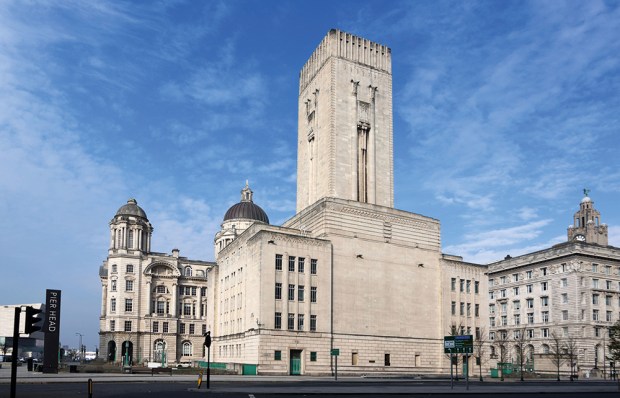It may be difficult to believe when you think of Donald Trump, but the age of super-humans is almost upon us. Some people are confident that over the next century genetic engineering, electronic implants, new drugs and the medical defeat of ageing will give rise to a race of beings with capabilities far beyond our own. And what will they do with them? What will clichéd fears about ‘playing God’ mean to our descendants who, by comparison with us, will effectively be gods?
Such questions exercise the historian authors of these two books. Michael Bess’s detailed and humane book adeptly surveys some eye-opening developments in current technology (bionic vision, thought-controlled machines and so forth), and foresees that future humans will enjoy double the average healthy lifespan of today, leading to lives of multiple marriages and career changes. Yuval Noah Harari, author of the bestselling Sapiens: A Short History of Humankind, is both slightly vaguer and bolder in his predictions. (Death is just a ‘technical problem’, he argues, at least in terms of senescence. It will probably be solved.) But his book is also more intriguingly rambling, taking in ancient history, painting, war and terrorism along the way.
The first two parts of Homo Deus reinterpret human history in terms of its governing ‘religions’, by which Harari means any system of thought that offers a reliable value system, so that modern science and ‘humanism’ count as religions too. To the question of what separates us from the other animals, he offers the answer that humans are just better at co-operating flexibly with innumerable strangers of their own species. And he, like Bess, is confident that, no matter how much liberal handwringing occurs, human enhancement will actually take place. In medicine, Harari points out, ‘No clear line separates healing from upgrading.’ (The ADHD medication Modafinil is an effective ‘smart drug’ for healthy users.) Bess points to a raft of potential social problems — a two-tier class system, for example, with the enhanced haves being resented by the have-nots. But some thinkers argue that we have a moral duty to enhance ourselves intellectually and morally, in order to help us avoid continuing to make such a global mess of things.
Politically speaking, Harari’s prognosis is rather more apocalyptic. ‘Liberalism will collapse,’ he assures us. Why so? Partly because computerised algorithms, with access to all our communications and moment-to-moment physiological data, will eventually come to know our preferences better than we do ourselves, so that it would be remiss to allow us, with our imperfect recall of our own opinions, to vote in elections. More generally, he argues that, thanks to bioengineering, ‘the sacred human will’ is going to become ‘just another product’, and it will be implausible to continue believing in the fundamental equality of all people. In that case, the religion of humanism itself will come to be seen as resting on self-evidently false premises.
Humanism is already, Harari thinks, increasingly strained by what he perceives as the ‘dogma’ of modern science, though his reports of this dogma can seem overstated. The life sciences, he announces, consider that all living things (including humans) are just algorithms. They also apparently insist that there is no free will, and that art is just a case of ‘organic algorithms recognising mathematical patterns’. These propositiona are no doubt offensive to humanists, though I am not at all sure that most, or even many, scientists firmly believe them as stated.
In an often thought-provoking and always elegantly written book, Harari has a slightly shrill habit of announcing that people have been confused about some subject for hundreds or thousands of years because they misunderstand some particular word (‘religion’, for instance). He is also one of those writers who disown ‘mere philosophising’; in other words, he considers that actual philosophy has no bearing on the evidently philosophical questions he discusses.
If liberalism and humanism collapse, what next? They will give way, Harari foresees, to ‘dataism’, according to which the ultimate good in the universe, its core value, is improving the flow of information. (‘What’s the advantage of humans over chickens?’ Harari imagines a dataist asking. ‘Only that in humans, information flows in much more complex patterns than in chickens.’) And so the destiny of humans will have been to build the ‘internet of things’, turn it on and then retire. Happily, at least, dataism still leaves humans room to fight their own mortality. After all, ‘What is death, if not a situation when information doesn’t flow?’
Books of this sort, of which there are an increasing number (see also Robin Hanson’s recent fantasia on uploading our minds to virtual reality, The Age of Em) do tend to read like science fiction with all the good bits taken out. To his credit, Bess offers a series of imaginative ‘vignettes’ describing moments in the lives of his future enhanced humans, and both writers emphasise that they are offering their predictions as a way of informing current decision-making. If we don’t like the world they portray, it may still be within our power to head it off to some degree, or at least to enact sensible regulation. I, for one, found that all these gosh-wow stories of enhanced humans doing extra-ordinary things all day just made me want to hole up in front of Netflix and eat crisps.
The post Tomorrow’s world appeared first on The Spectator.
Got something to add? Join the discussion and comment below.
Get 10 issues for just $10
Subscribe to The Spectator Australia today for the next 10 magazine issues, plus full online access, for just $10.
You might disagree with half of it, but you’ll enjoy reading all of it. Try your first month for free, then just $2 a week for the remainder of your first year.














Comments
Don't miss out
Join the conversation with other Spectator Australia readers. Subscribe to leave a comment.
SUBSCRIBEAlready a subscriber? Log in